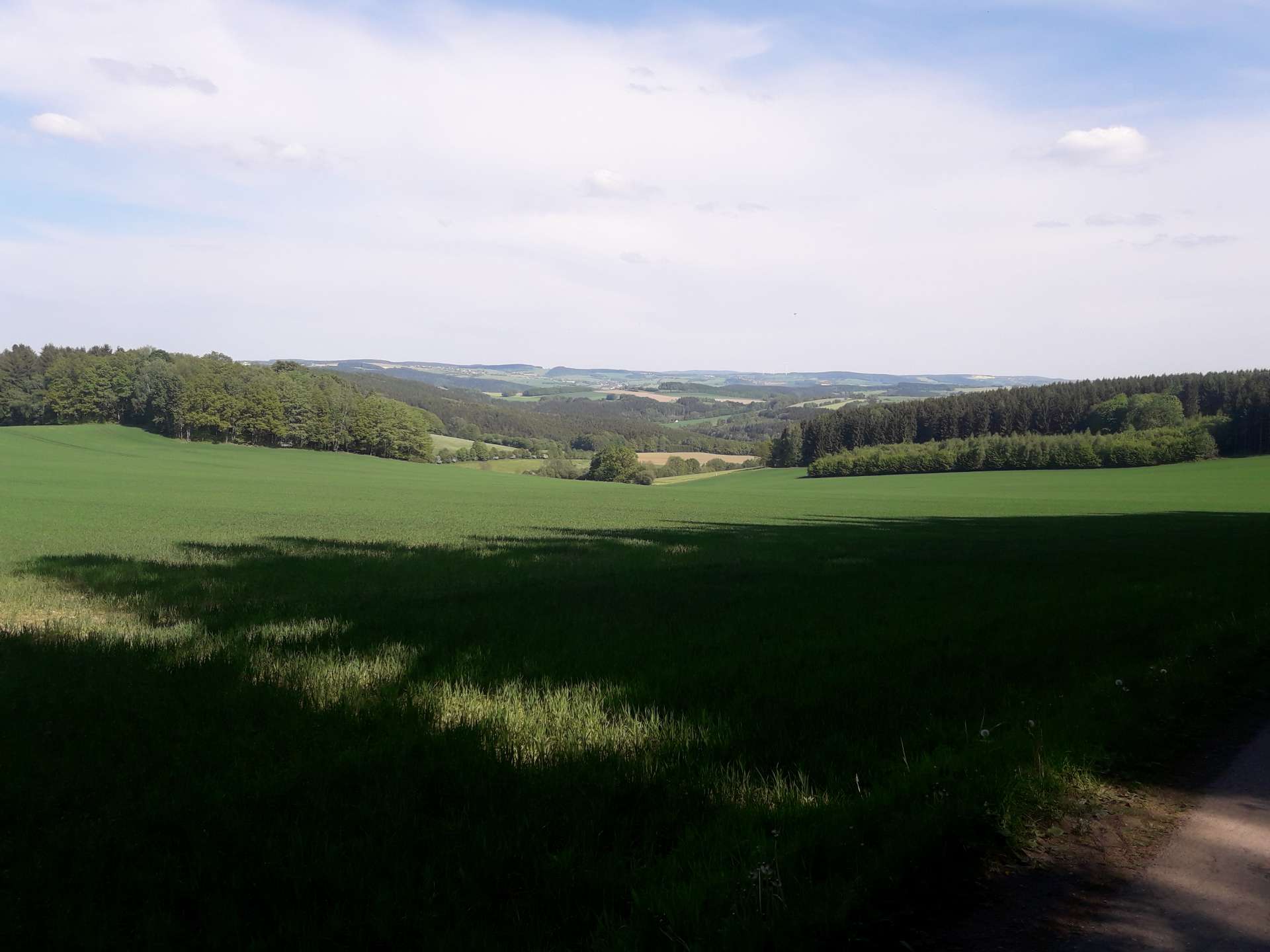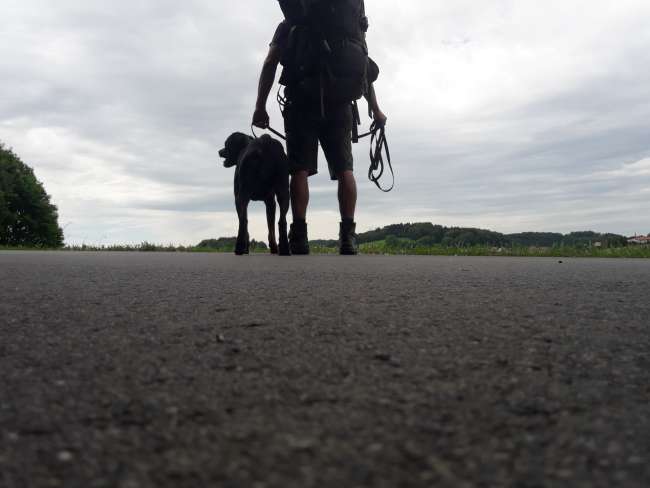Hiking Tour to Tushetis Alazani
E phatlaladitšwe: 18.07.2019
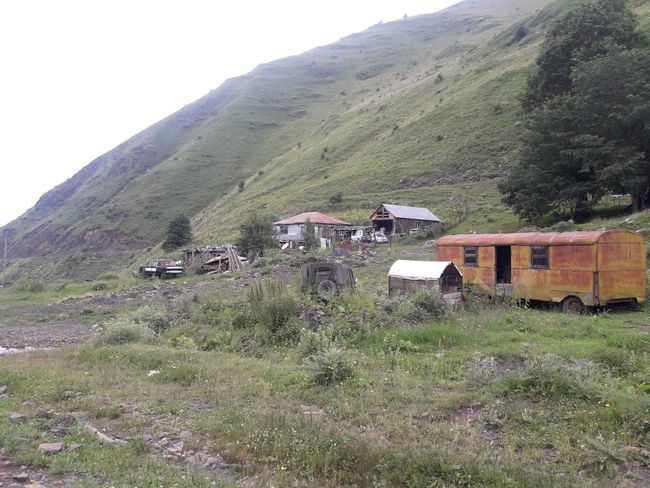
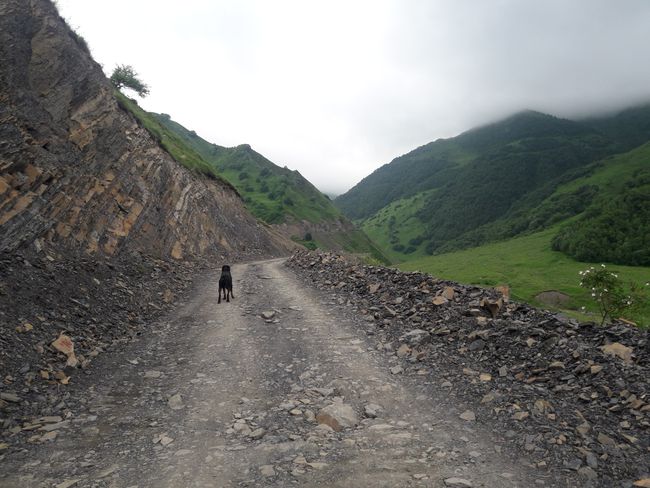
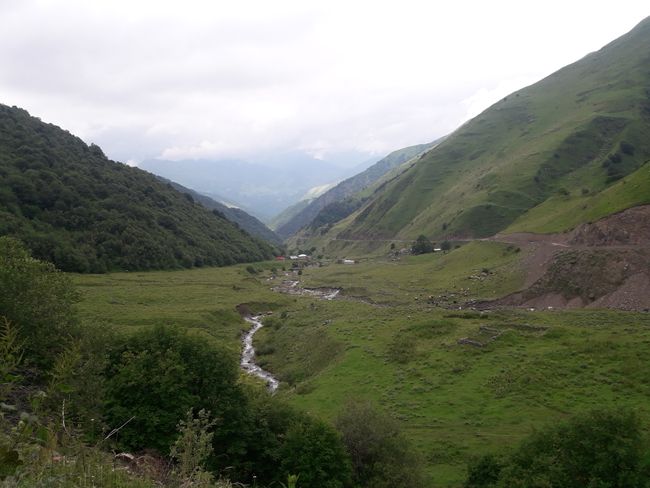
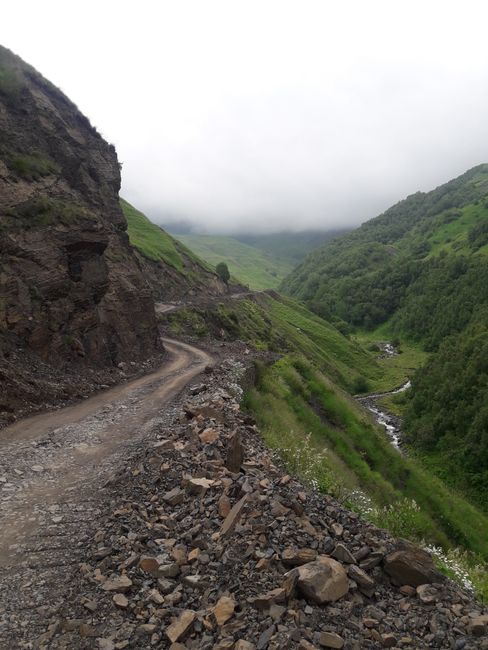
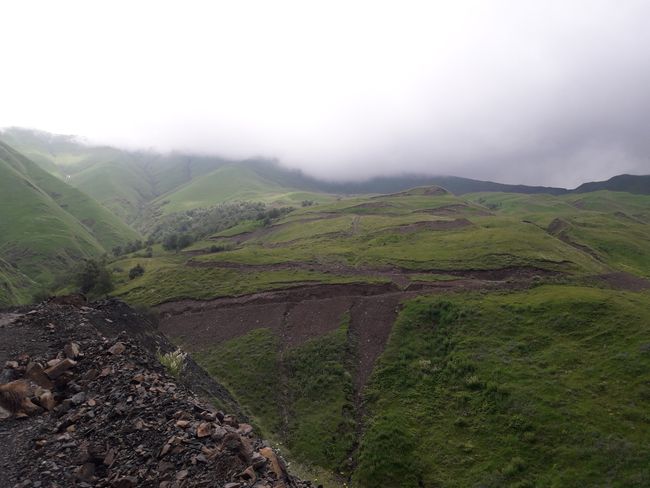
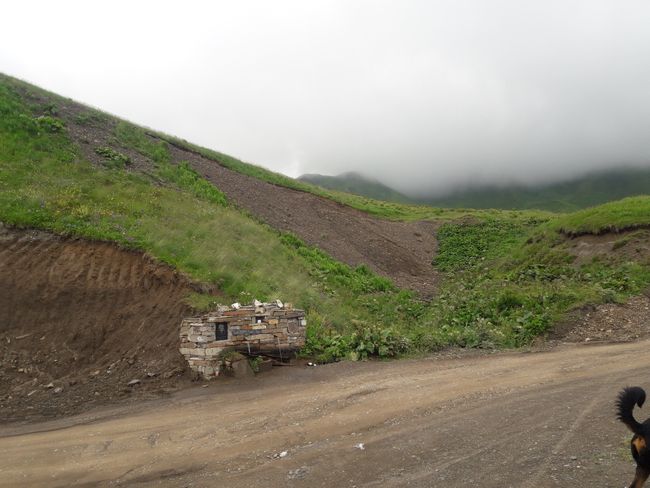
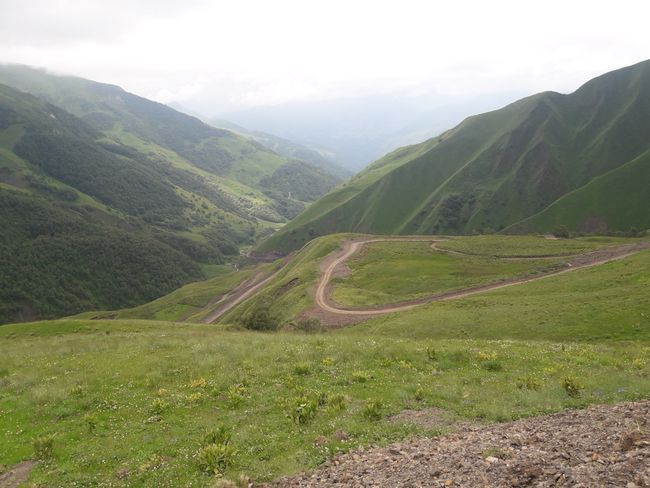
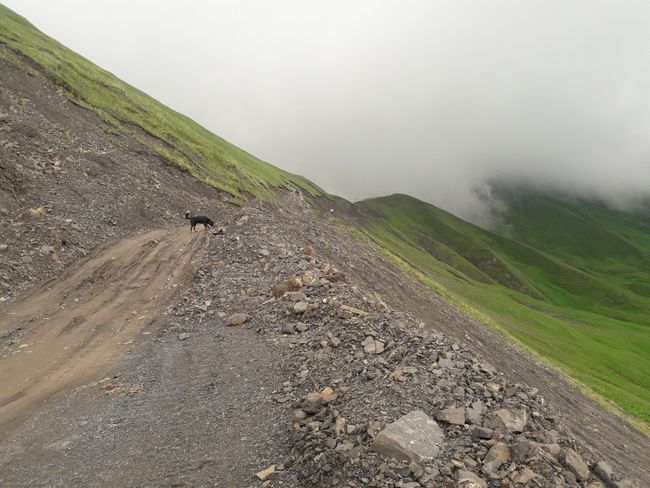
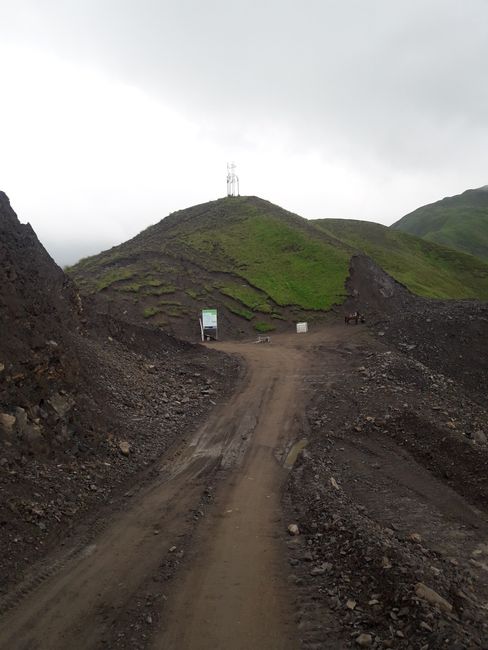
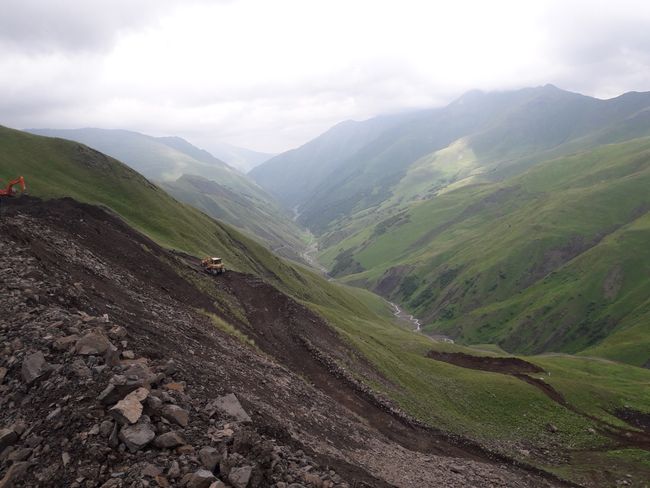
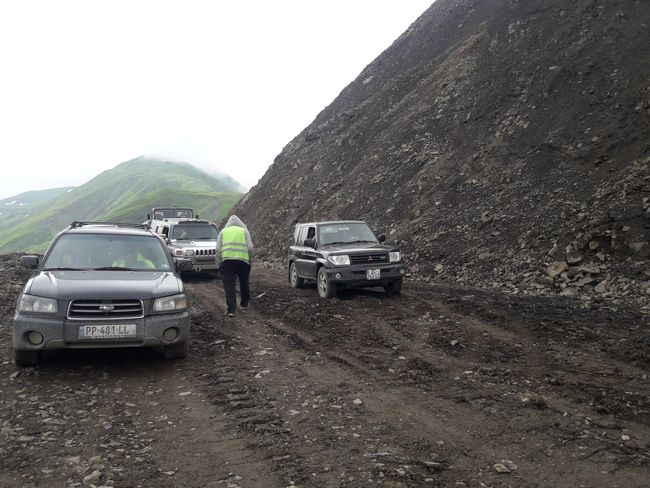
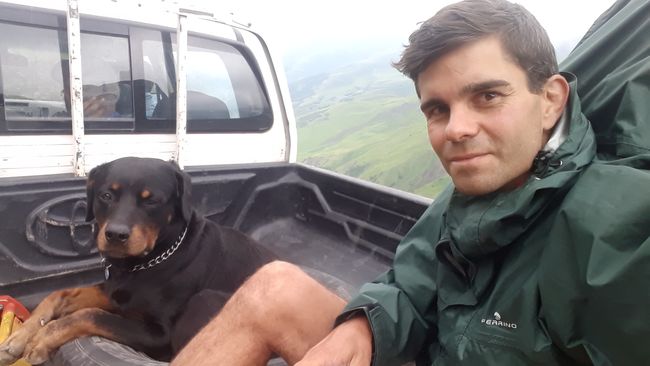
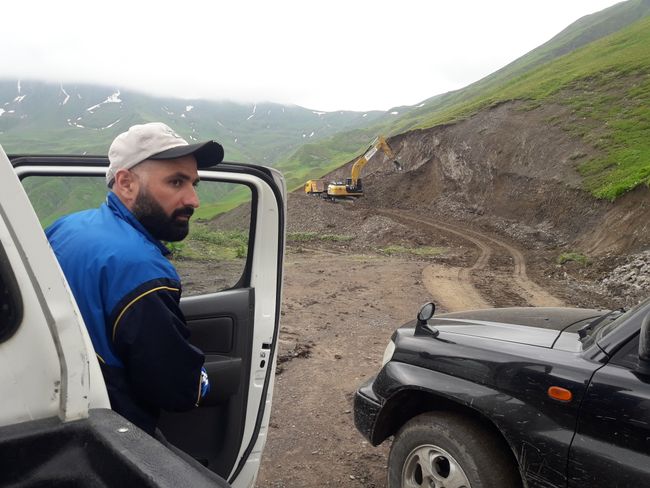
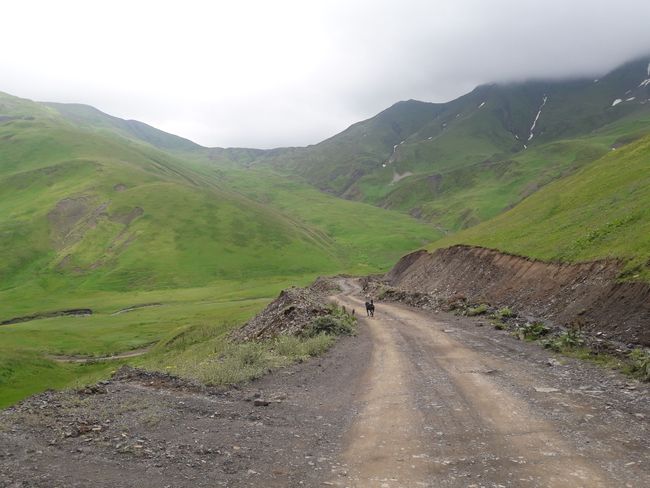
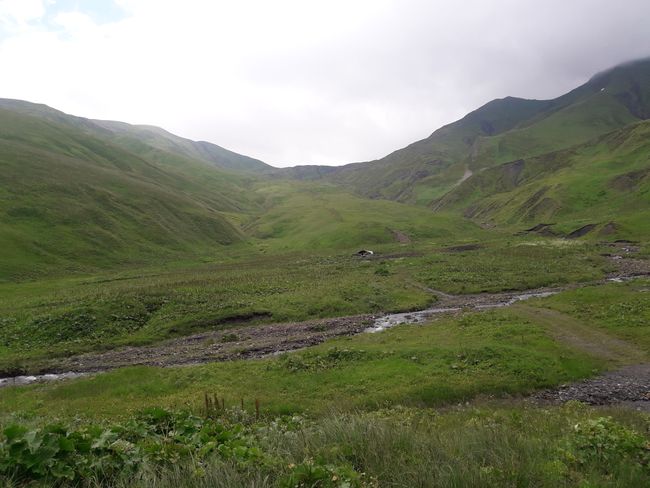
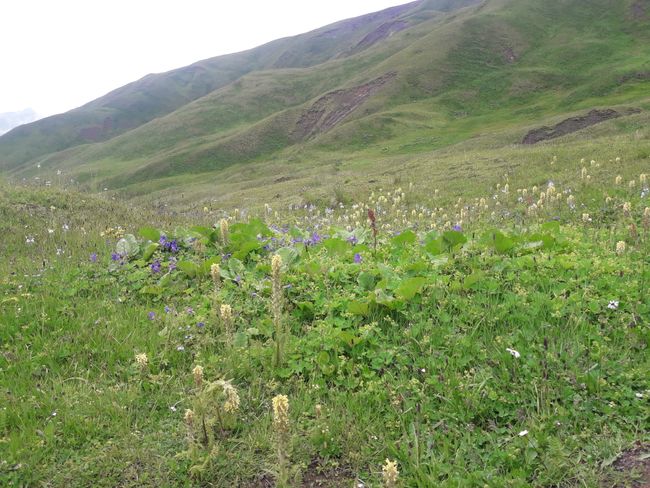
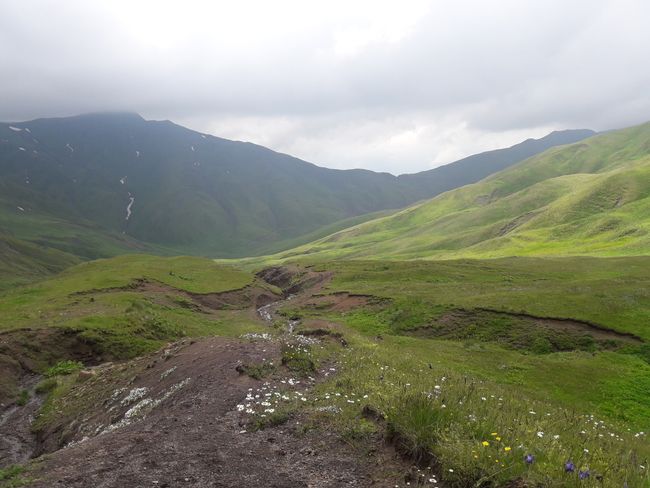
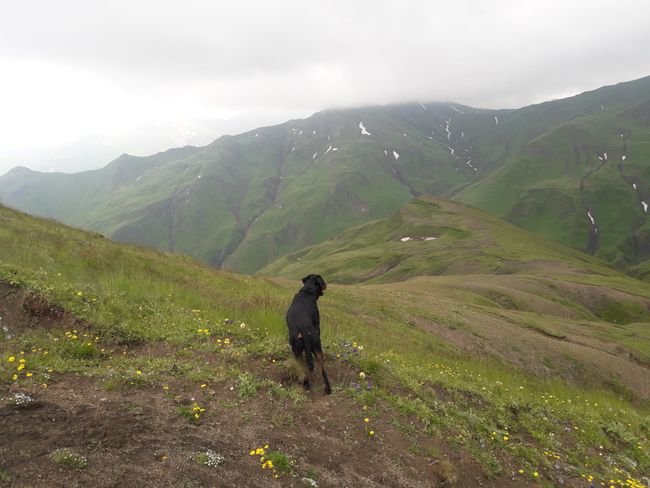
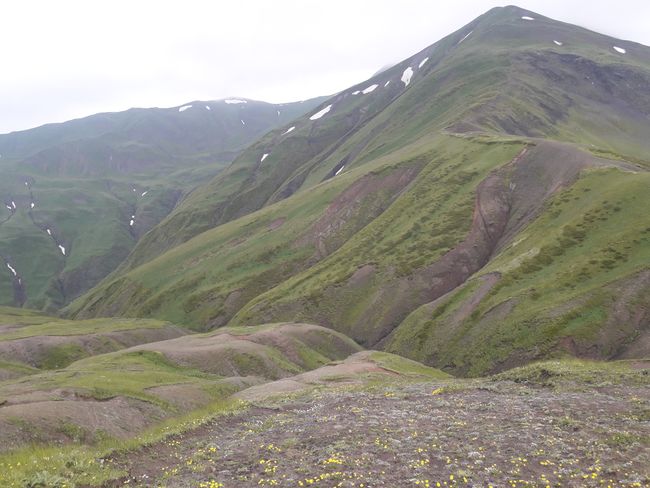
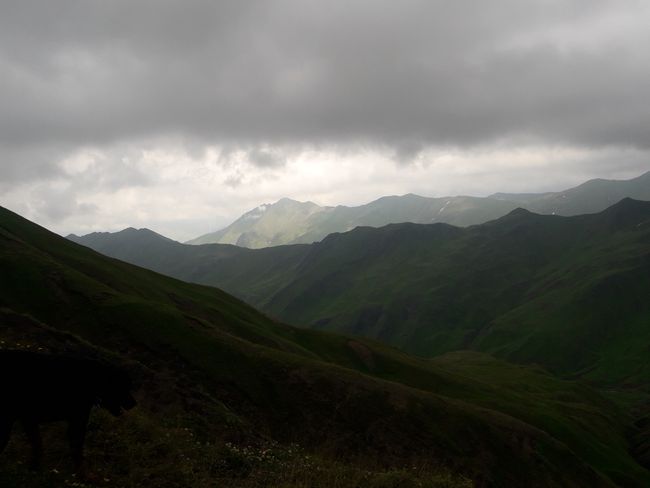
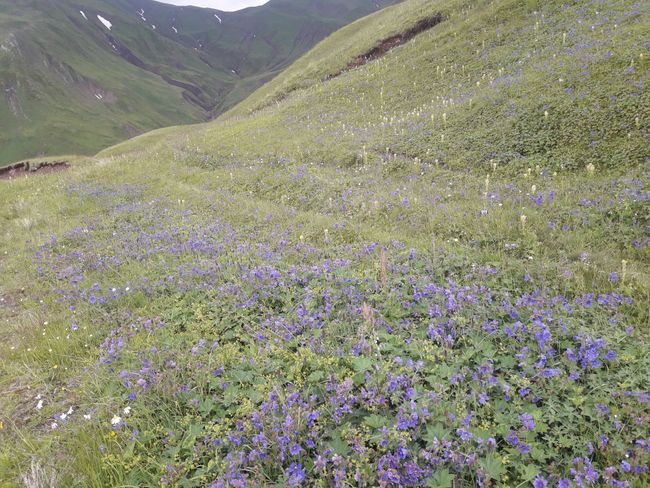
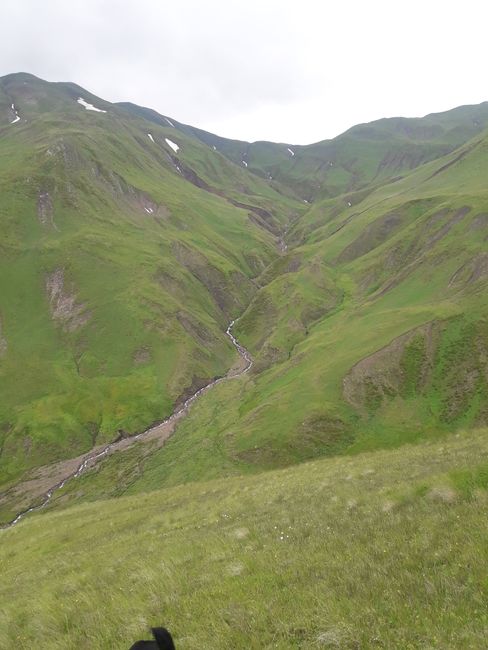
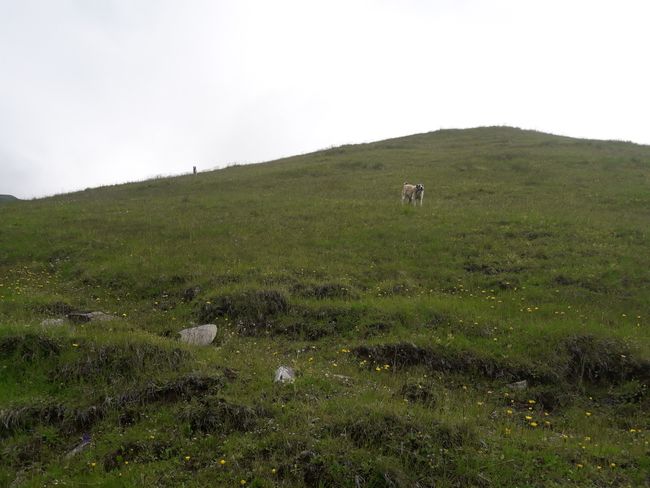
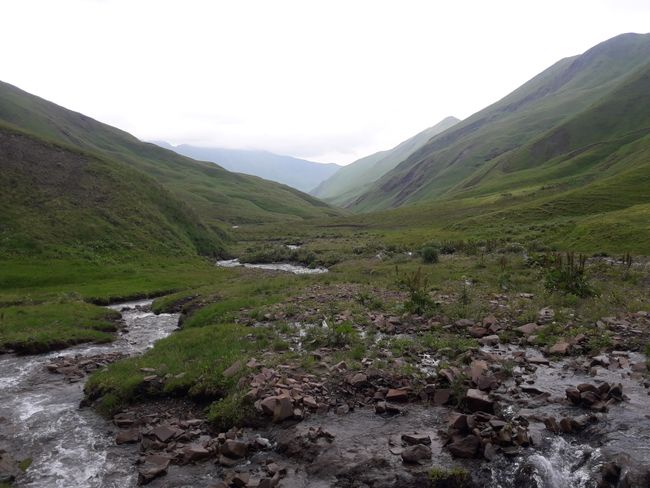
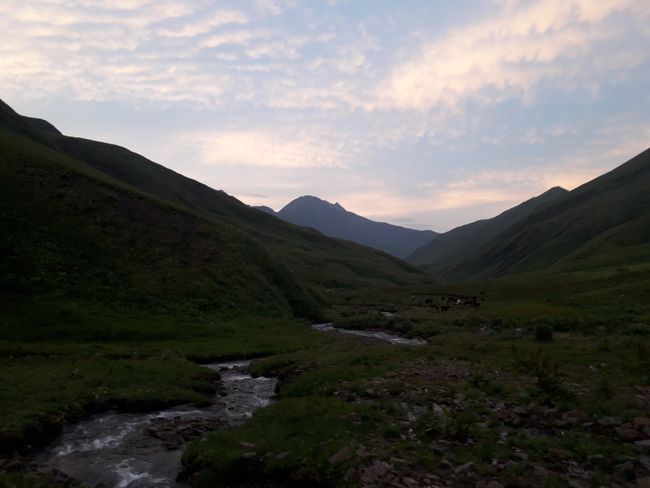
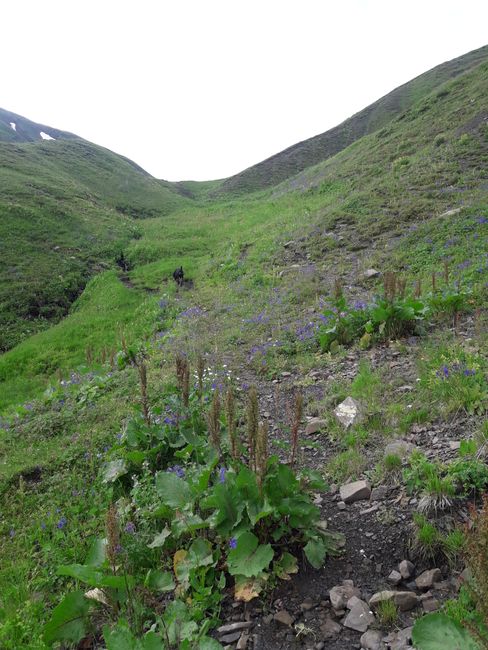
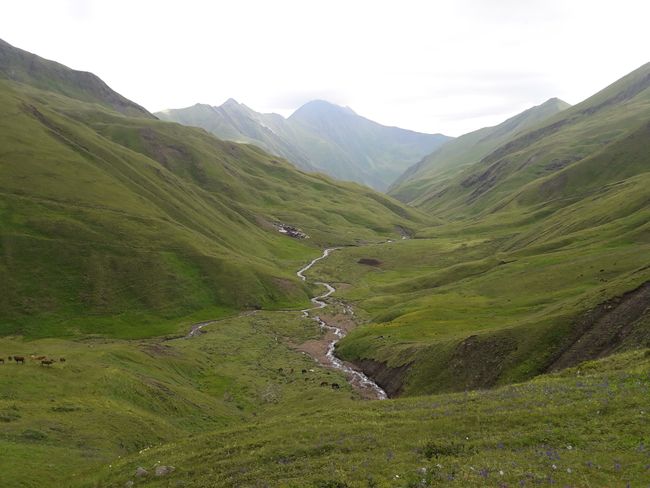
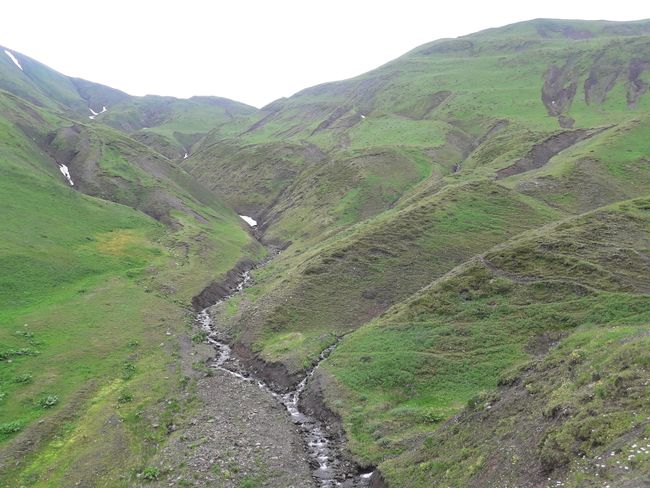
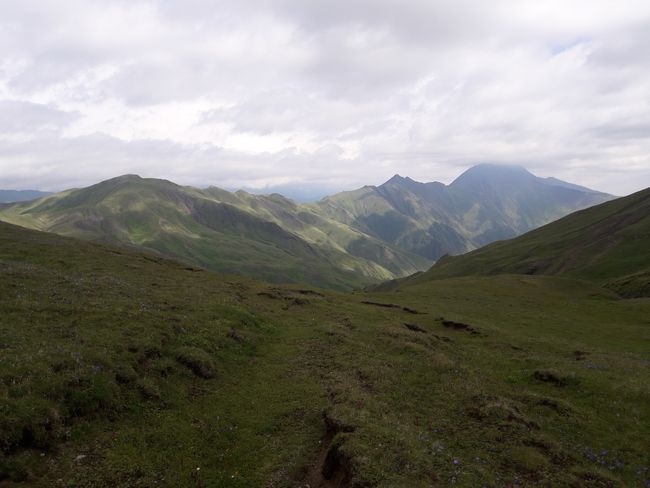
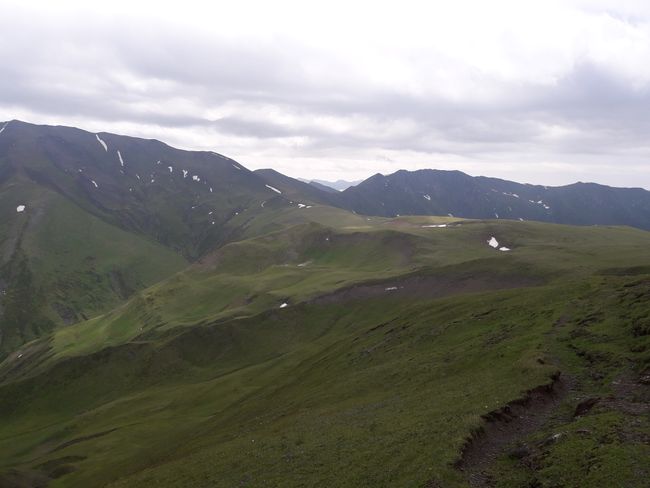
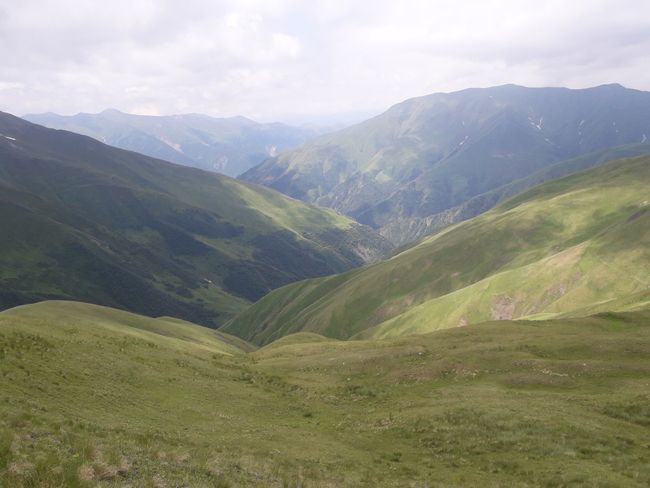
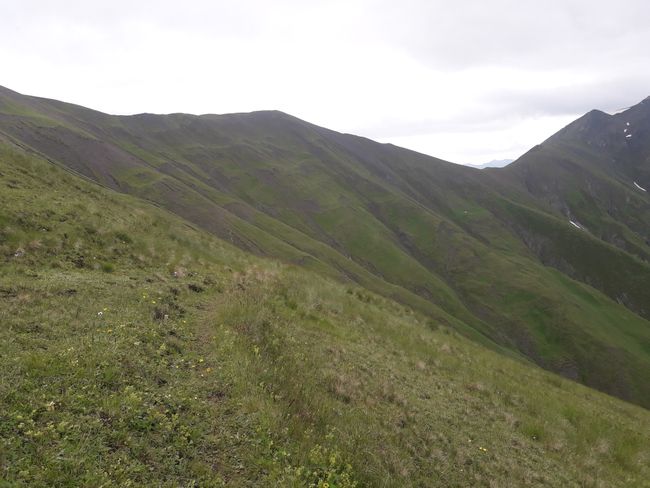
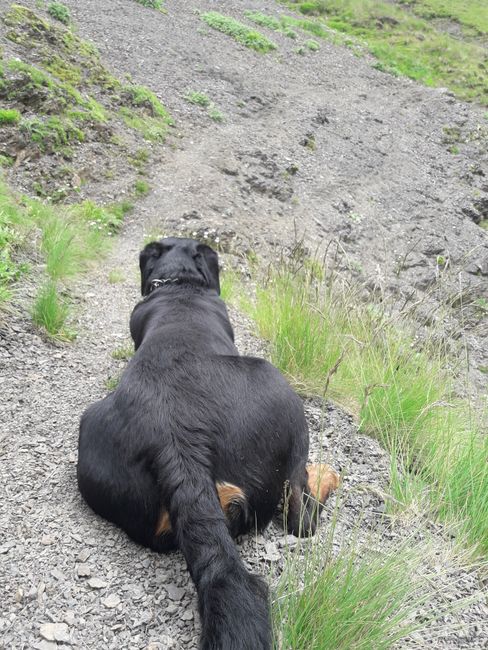
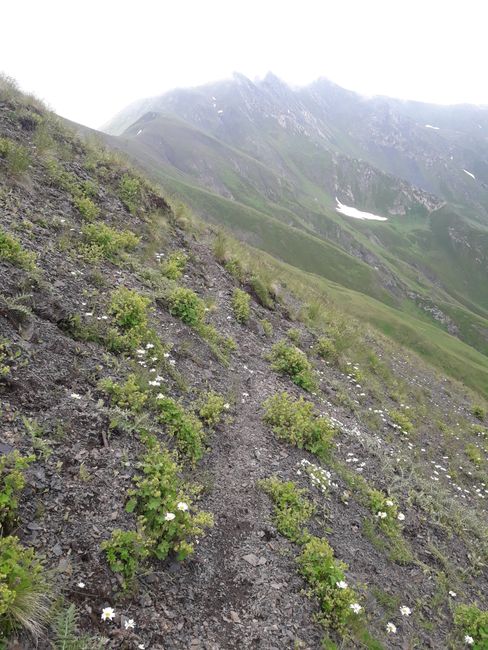
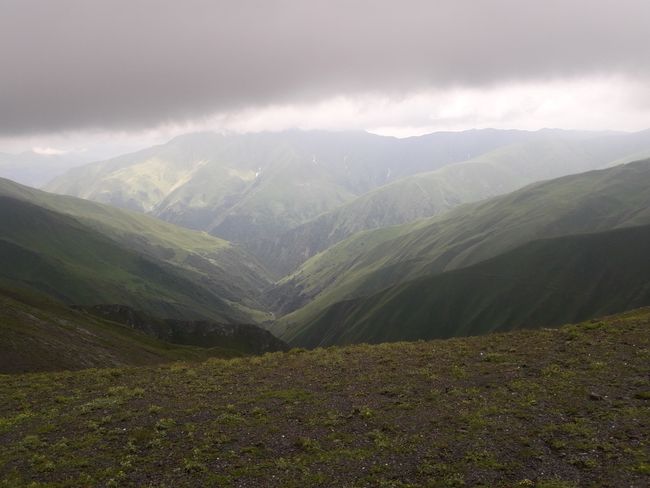
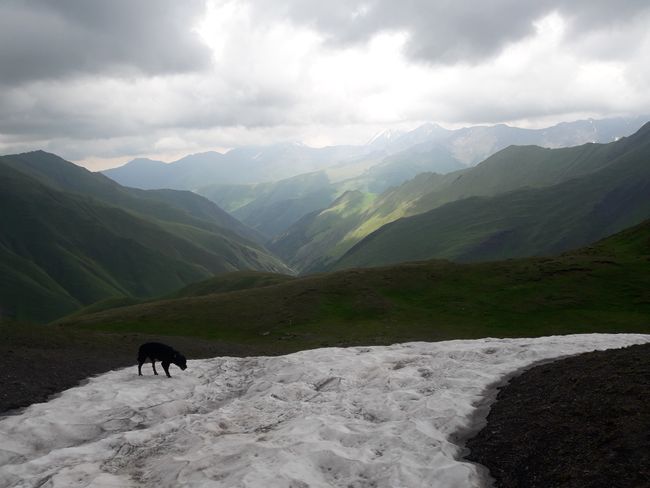
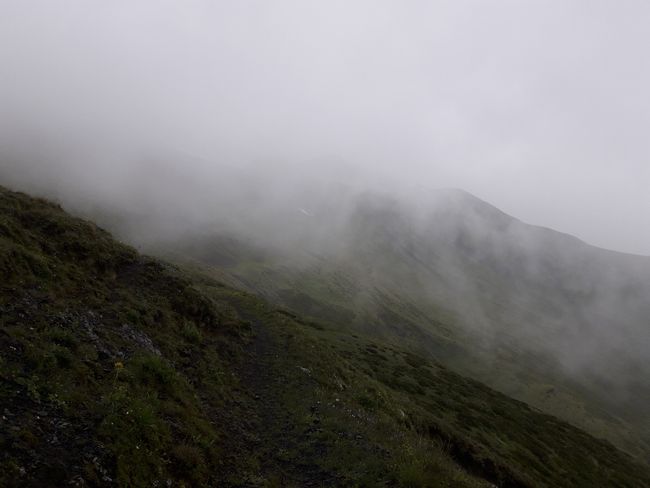
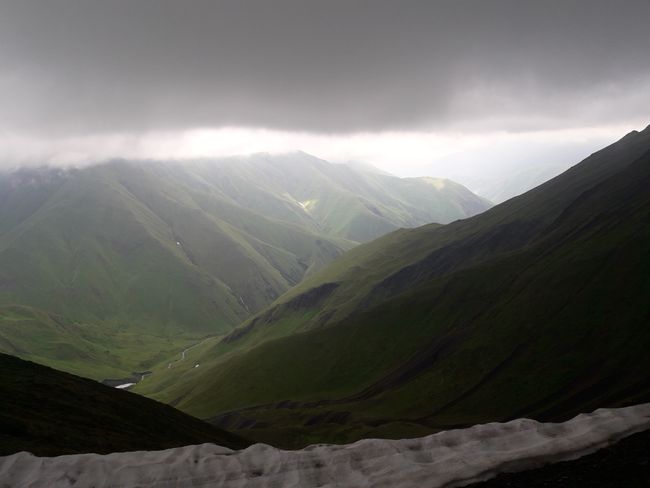
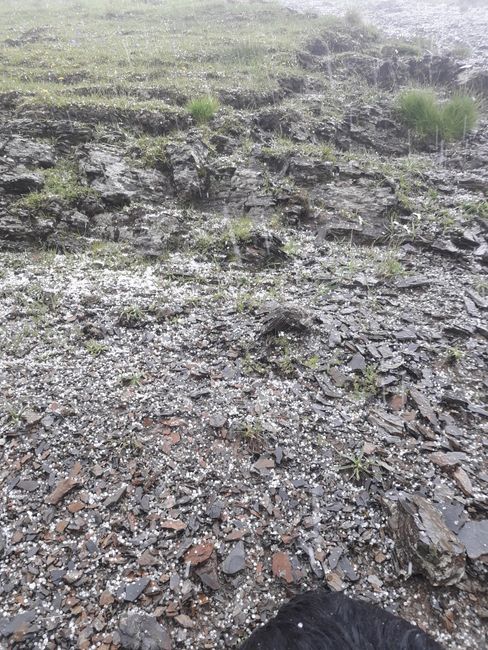
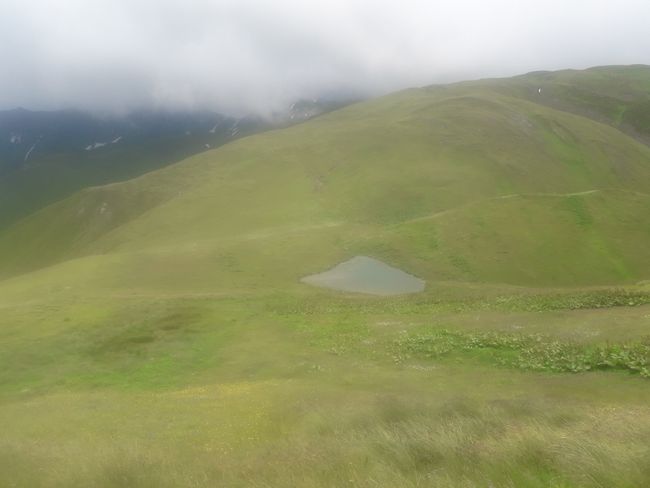
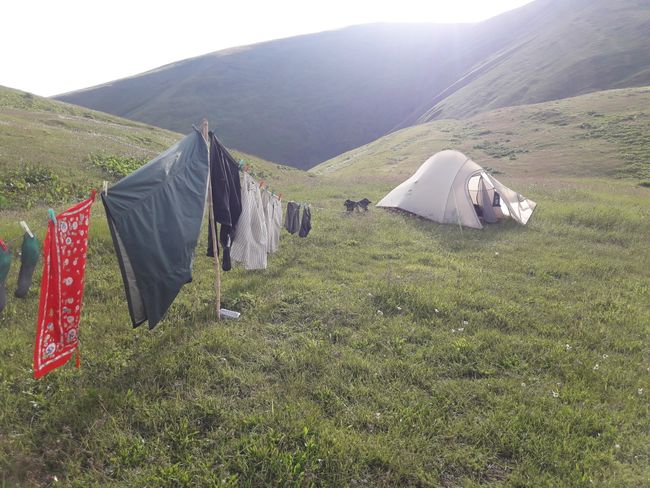
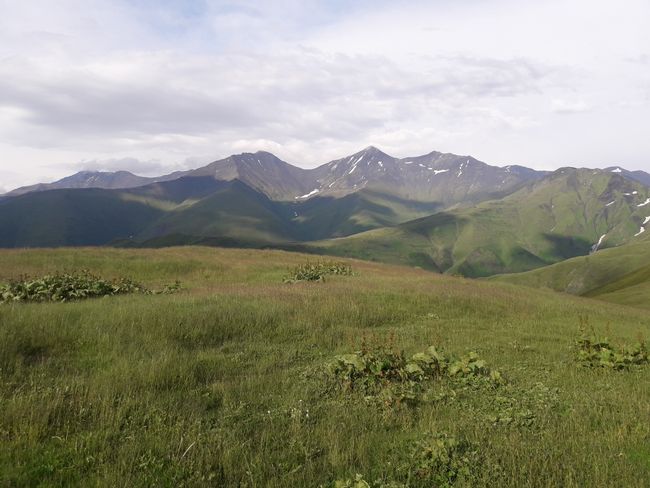
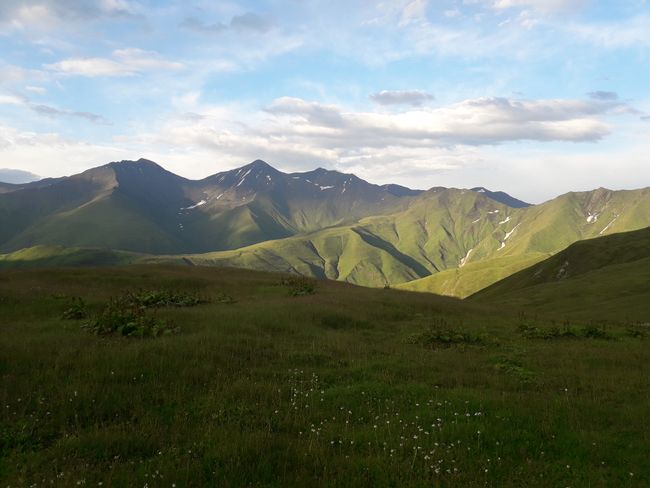
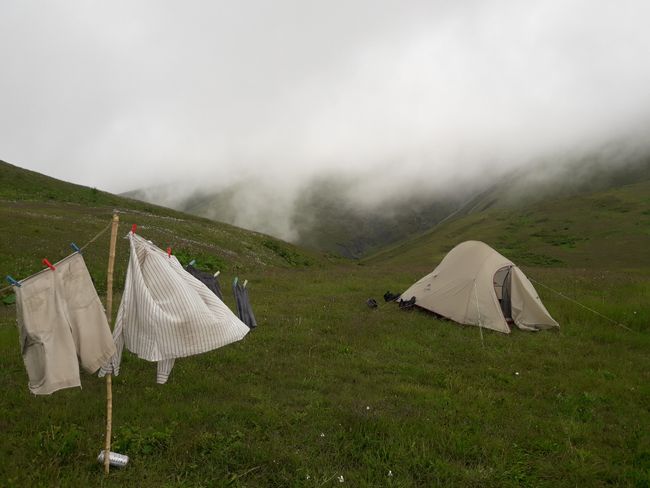
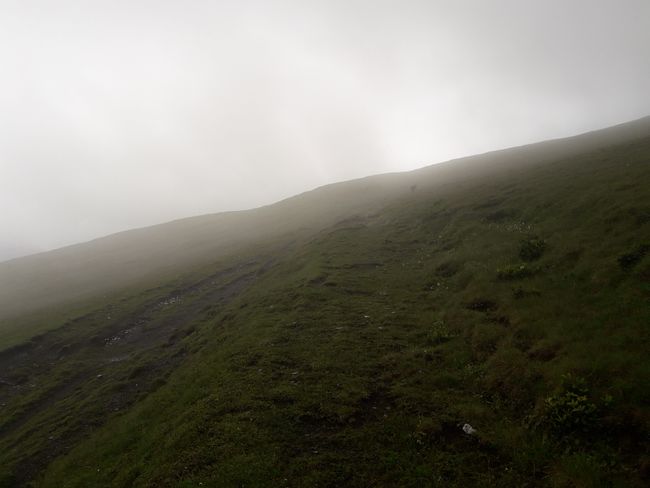
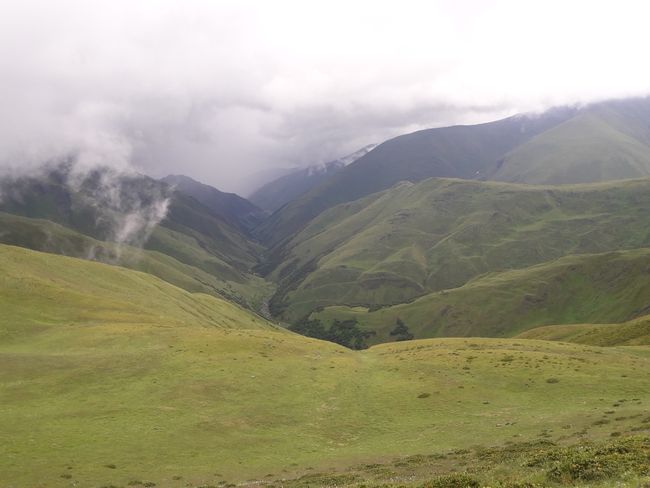
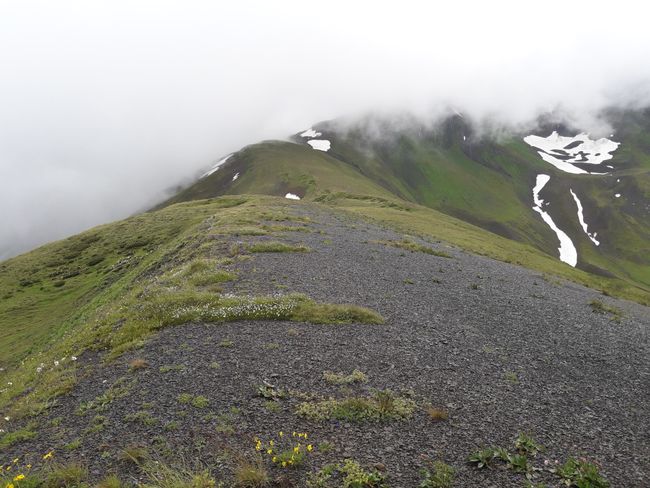
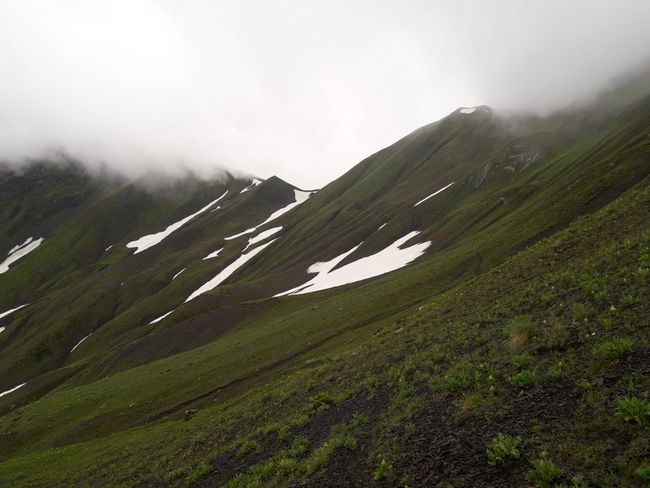
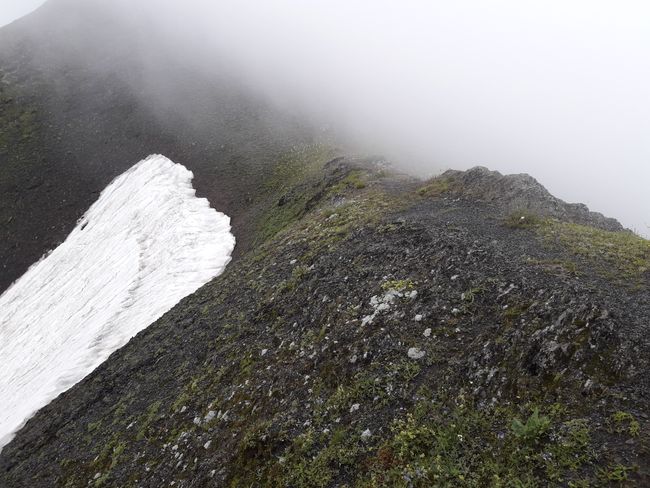
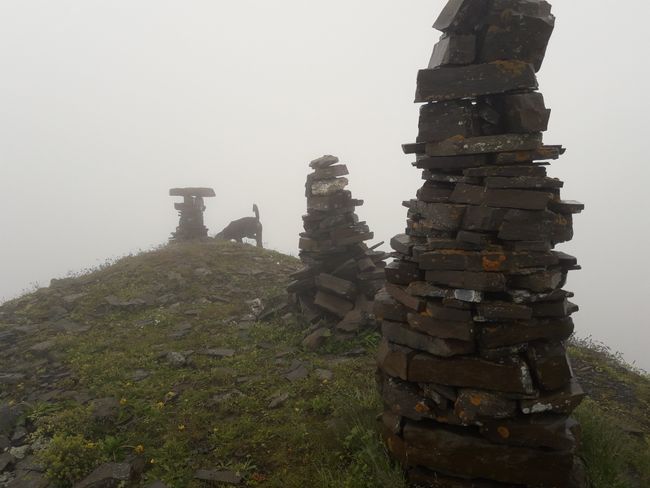
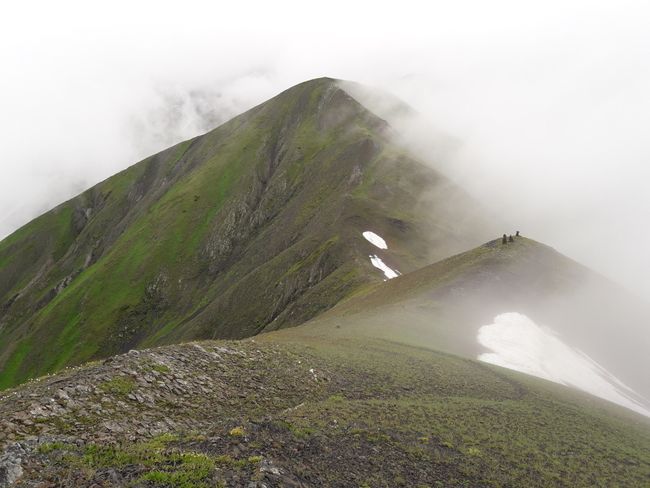
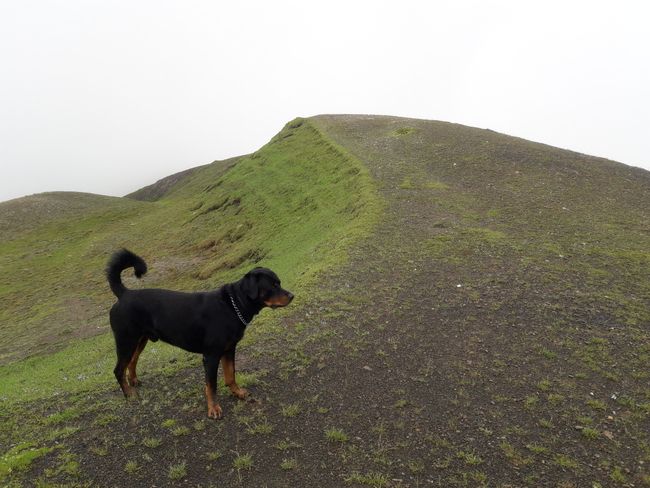
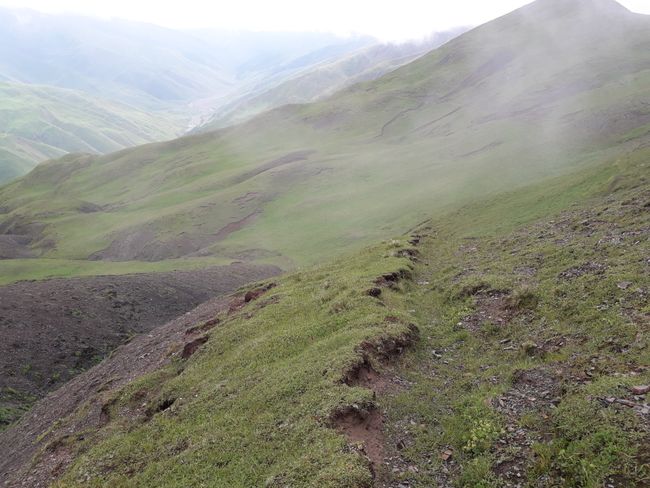
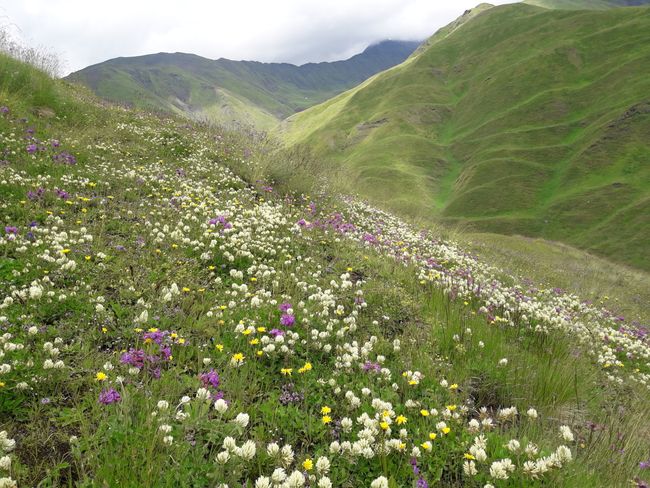
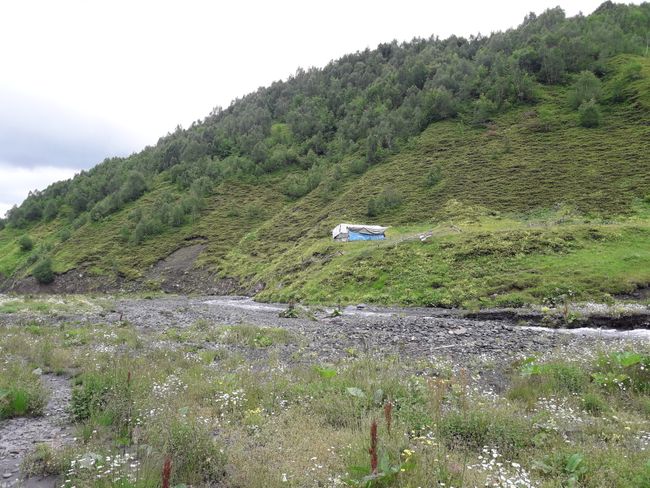
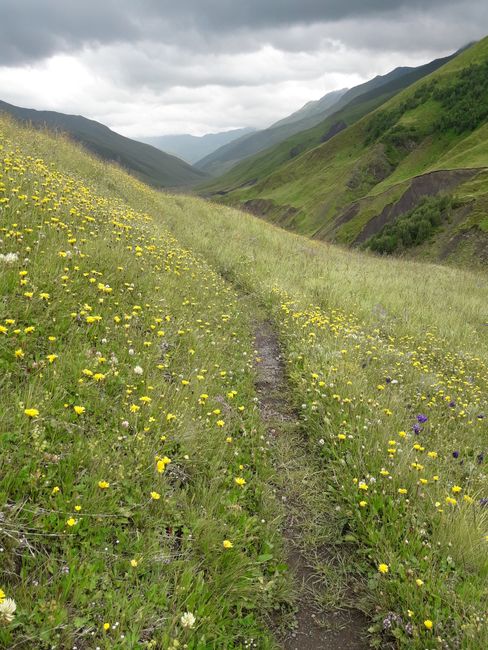
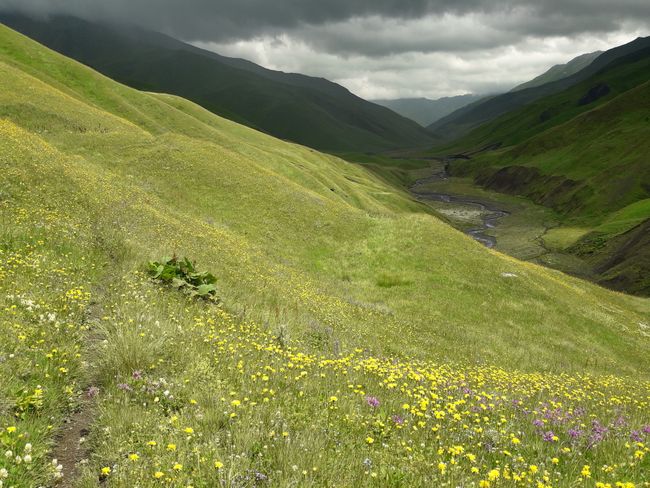
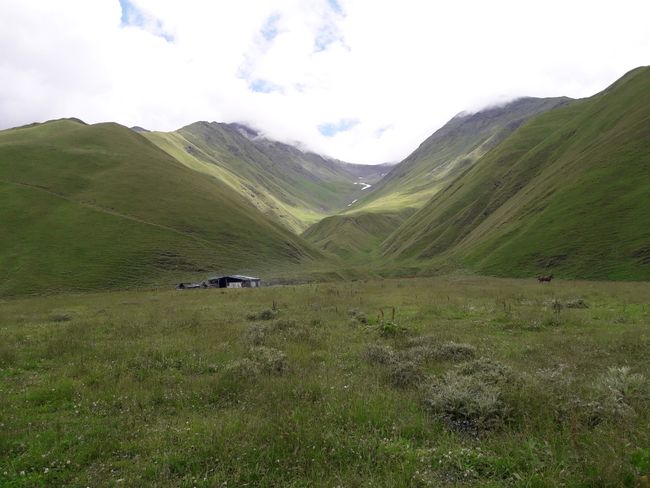
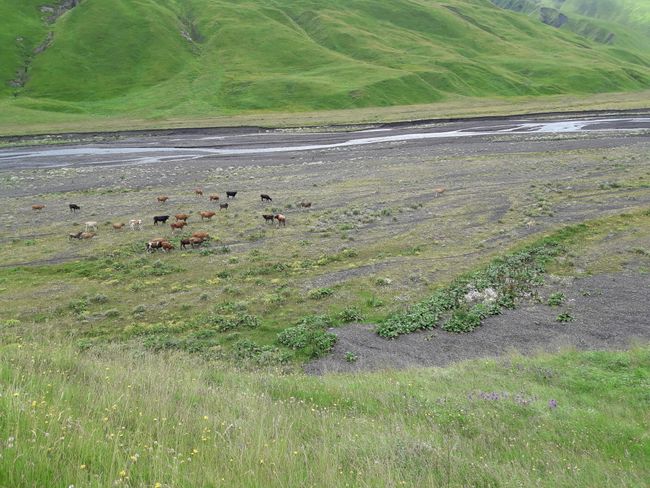
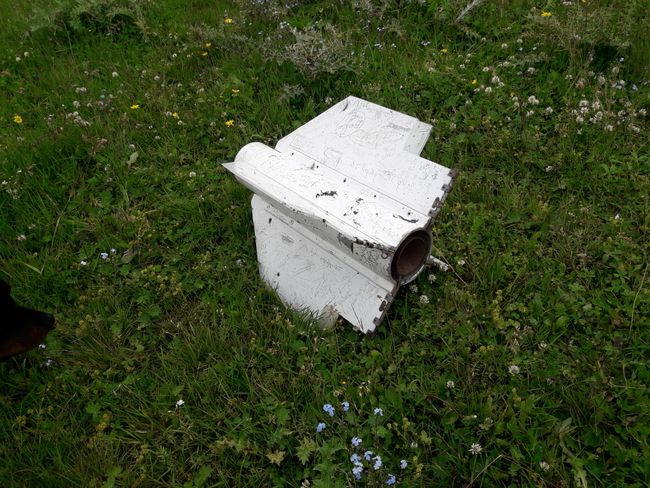
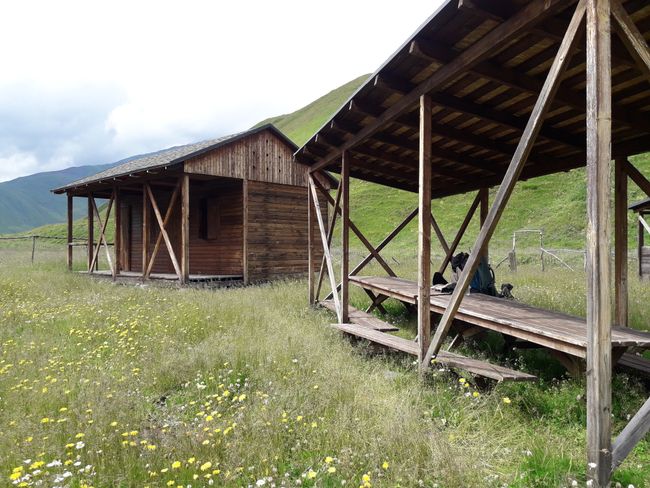
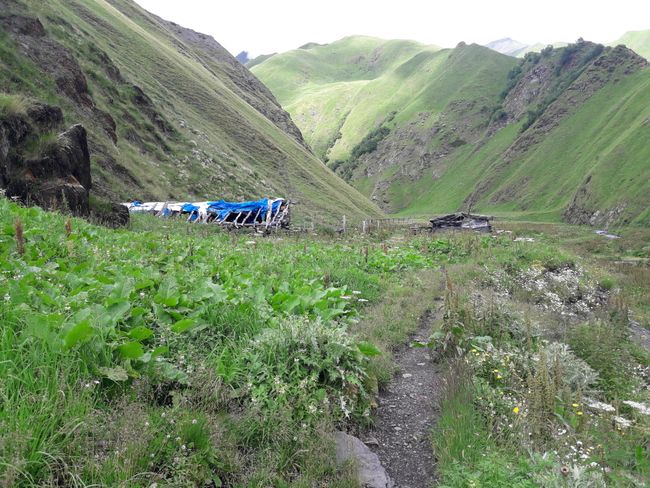
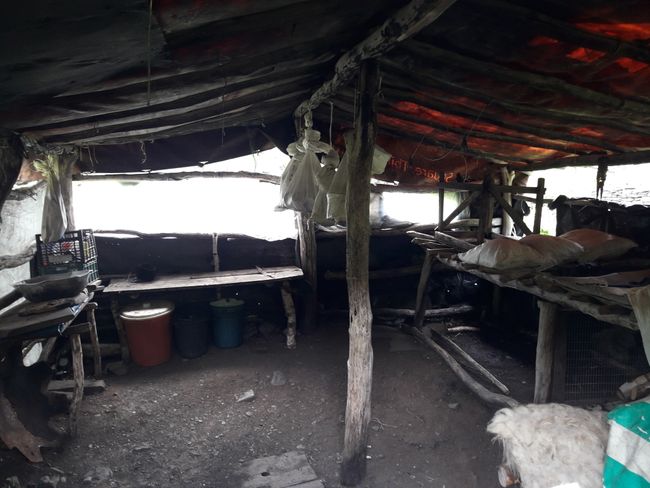
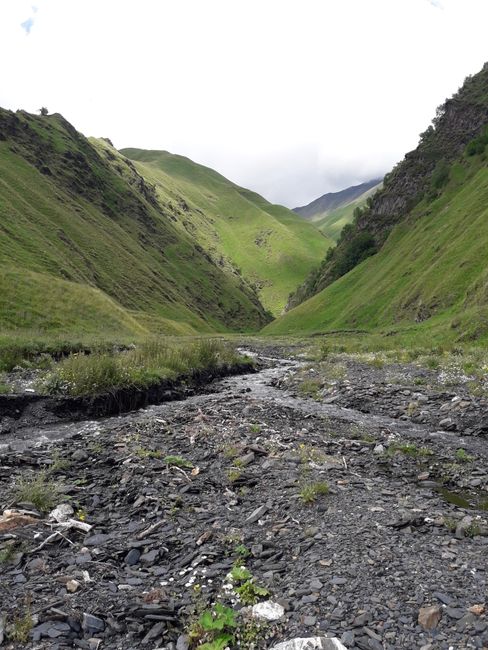
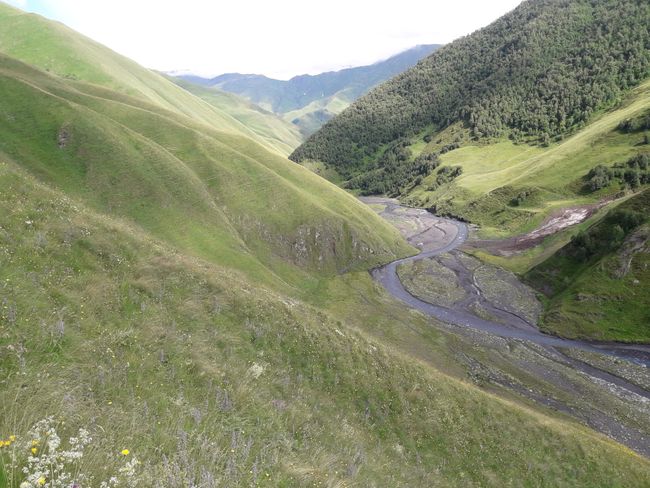
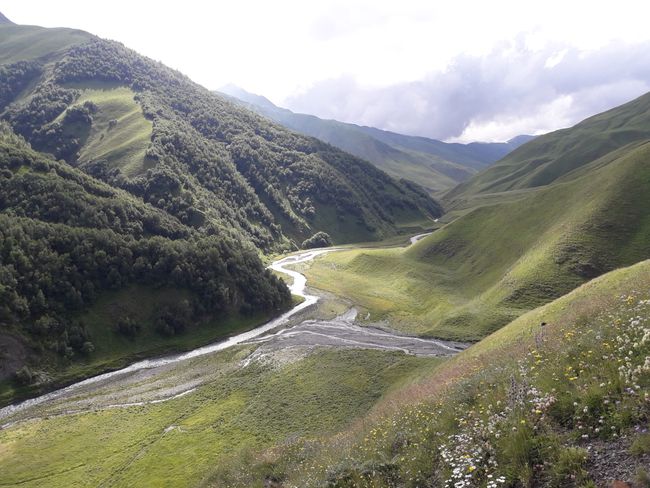
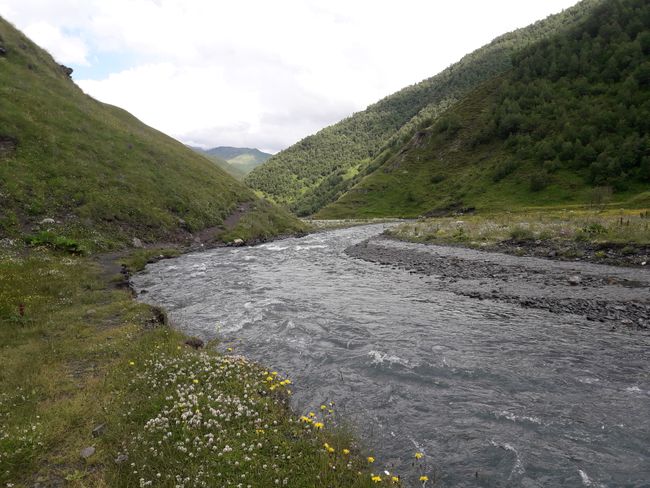
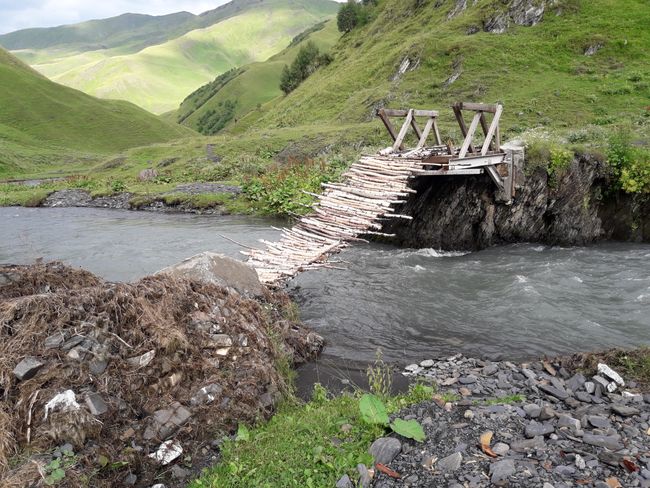
Ingwadiše go Lengwalo la Ditaba
During the night to Thursday, July 11, 2019, the fat one actually pukes in the tent. He probably didn't get rid of all the sausage leftovers from the day before. It must have been around two o'clock when I kick Rango out and clean up the mess. Then I go back to sleep, leaving the culprit outside for now. When it apparently starts raining about an hour later, Rango is allowed back under the tarp. We have breakfast at nine and then I go to Khakhmati without the fat one. Maybe I can add some cheese and bread to our food supplies, the bought white bread doesn't seem very generous. After a short chat at the first farm (I caught the Georgian guy who drove the cows into the valley the evening before), I can buy a good kilo of shepherd cheese and a loaf of bread. Very good. On the way back to the tent, I am accompanied by a barking and threatening farm dog. When I let Rango out of the tent, the dog disappears. Then I pack up our stuff and we leave our beautiful campsite around twelve. We walk about 2 km up the valley until we reach the switchbacks to the Datvisjvari Pass after half an hour. According to the road sign, the next 7 km will have S-curves. Well then, here we go. I use every shortcut that is available and after about 5 km we reach the pass. We can take a first look across the valley. About 200 m further down the road there is a traffic jam. There is construction work on the last two switchbacks and a few cars have to wait. When I arrive there, a group of construction workers invites me to ride a piece on their truck bed. Sounds good, until then I use the half hour waiting time for a little snack. I bought various waffles in the market the day before, and now I treat myself to a few. Meanwhile, Rango makes himself comfortable in the spare tire. Then we drive down the last two switchbacks and can directly turn onto the path to the east. We go uphill again, the next pass must be overcome. We reach 2900 m around four o'clock, walk a bit on the gentle hills before we have to descend again. On the way to the next valley, a sheep herd appears behind a hill about 100 m away and the sheepdogs promptly head towards us. Fortunately, the path moves away from the hotspot again, so the guards stick to barking threats. I drag Rango next to me and urge him to be restrained, which works quite well. Nevertheless, the situation is quite unpleasant, because the shepherd is not very interested in the whole thing. When we arrive in the valley bottom, I look for a suitable place to set up the tent and around five o'clock, after walking about 13 kilometers, I set up our campsite. After the evening routine, it's time to go to bed early.
On Friday morning, after breakfast, we set off shortly before 10 o'clock. After an hour, we have climbed the mountain ridge and can hike the next kilometers over the hilly ridge and along often steep slopes. The weather is mostly cloudy now and a strong, gusty wind blows from the south-southwest. I am quite happy when the path leads me along the side of the mountains shielded from the wind. Around half past eleven, I take a first break at a windless spot and enjoy a few waffles. Nothing disturbs the pleasant silence except for some birdsong and the distant sound of a mountain stream. It is probably moments like these that draw me back to the mountains despite all the hard work. After about 20 minutes, we continue hiking towards the southeast, always between 2800 m and 3000 m altitude. In the late afternoon, we encounter a heavy thunderstorm. An unpleasant mixture of hail and rain falls on us, still accompanied by strong wind. Soaking wet below the waist. As quickly as it began, it is over again. We continue hiking and shortly afterwards we are hit by another heavy thunderstorm. This time I have to stand still on a steep slope and turn my back to the hail. It is not possible to continue walking. Rango is also too soft for such weather and seeks shelter in my wind shadow. My raincoat protects me quite well from the worst, but in that moment I regret choosing to wear shorts in the morning. But we survive this annoyance as well and can resume our journey shortly afterwards. Around half past two, after another 13 km, we reach Lake Borbaloskari and I decide to end today's hiking day prematurely. The weather of the last few hours has worn me out and there seems to be no improvement in sight. So I set up the tent in strong wind and light rain, hang up my wet clothes, treat myself to a few more waffles, and retreat to the sleeping bag to warm up for the next 2 hours. Meanwhile, the nasty weather calms down a bit. The strong wind subsides more and it only drizzles occasionally. I spend the evening writing a travel report, doing a little training, and doing some repair work before finally going to bed after dinner.
During the night to Saturday, July 13, 2019, it rains heavily at times. In the morning, the hanging clothes are still soaking wet. After having breakfast around half past eight, I decide to continue the hike despite the bad weather. While I pack our things in the backpack inside the tent, a small hailstorm breaks out outside. I have to hold the tent poles from the inside so that they don't break, but otherwise I'm quite satisfied with the tent quality. It withstands the adverse conditions. Then I use the next short break in the rain to pack up my tent and we start the hiking day around half past ten, in drizzly weather. An hour later, I can take a first break at the Borbalo Pass at 2980 m. Then we climb a few more meters, hike a stretch on the hilly mountain ridge, and then start the descent to the upper course of the Tushetis Alazani. We pass a sheep herd at a safe distance and reach the valley bottom at about 2300 m around one o'clock. Time for a few hiking waffles. The descent was less strenuous than feared, but the snack is still welcome. Meanwhile, the sun shines on us again from time to time. Then we hike eastward along the river. We pass a few summer camps of herders and reach the Alaznistavi Tourist Shelter around three o'clock. Unfortunately, there is no opportunity to have a coffee, but after hiking about 14 kilometers, it's still a good time for a little break. After some rest, we hike 7 more kilometers along the river, with the path sometimes being difficult to find and encountering rain again from time to time. Around six o'clock, we stop near a sheepherder's shelter. I hang up my still wet tent to dry (the sun is shining again), I am seen by a herder and invited directly for coffee, bread, and cheese. Then I go back to Rango, set up our camp and retreat under our tarp before it starts raining again. It won't stop all night.
Ingwadiše go Lengwalo la Ditaba
Karabo
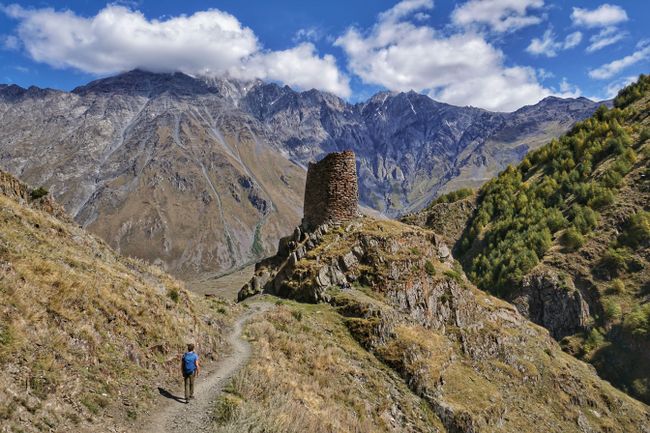
Dipego tša maeto Georgia
